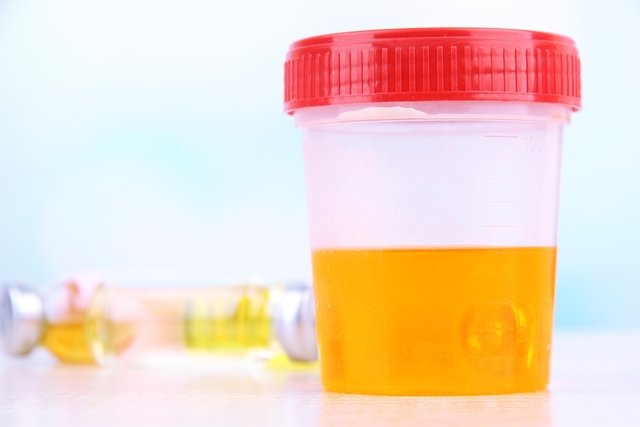Microalbuminuria is characterized by a loss of small amounts of albumin through the urine. Albumin is a protein that performs several functions in the body. Under normal conditions, little or no albumin is eliminated in the urine, as it is a relatively large protein that does not leak through healthy kidneys.
Normal urine albumin levels should be less than 30 mg in a span of 24 hours. However, when levels between 30 and 300 mg are noted within 24 hours, this is considered microalbuminuria. In some cases, it is an early marker of kidney damage.
Microalbuminuria can happen when there are changes in the body that interfere with the normal glomerular filtration rate, and the permeability or pressure within the glomerulus, which is a structure located in the kidneys. These changes lead to albumin leaking through the kidneys, which is then eliminated through the urine.

Main causes
The main causes of microalbuminuria are:
1. Diabetes
People with decompensated or untreated diabetes tend to have high blood sugar levels. This causes inflammation and damage to the kidneys, which can alter normal functioning and lead to albumin in the urine.
The presence of microalbuminuria can be an early sign of diabetic nephropathy, a complication of diabetes that can cause chronic kidney disease.
2. Hypertension
High blood pressure can cause kidney damage that, if left untreated, may lead to chronic kidney disease over time. This happens due to narrowing of the body's blood vessels, including the vessels in the kidneys, which can interfere with how blood circulates and how the tissues receive oxygen. These consequences can affect kidneys' ability to filter the blood and eliminate toxic substances from the body through urine.
3. Cardiovascular diseases
Cardiovascular diseases, like cardiac failure, can alter kidney functioning, as many heart conditions can affect how the heart pumps blood to other organs. This can lead to congestion within the vessels as well as increased local pressure, interfering with the permeability of the vessels. These conditions can lead to greater albumin filtration and the elimination of this protein in the urine.
4. Chronic kidney disease
Chronic kidney disease is a disease that is characterized by structural changes and changes in kidney activity. These can promote albumin losses in the urine, and cause symptoms such as foamy urine, nausea, vomiting, cramps and swelling of the feet.
5. High-protein foods
A high-protein diet can overload the kidneys, increasing pressure on the glomerulus and promote albumin elimination through the urine. Glomeruli are structures found in the kidneys that are responsible for filtering the blood.
6. Glomerulonephritis
Glomerulonephritis is characterized by inflammation of the glomerulus, which is the structure of the kidneys responsible for filtering the blood and eliminating toxins and substances found in excess in the body. Swelling of this structure can be caused by a viral or bacteria infection, diabetes, autoimmune diseases or hypertension. Inflammation leads to the presence of proteins in the urine, darker urine and swelling of the face and legs.
Confirming a diagnosis
Microalbuminuria is initially diagnosed through a urinalysis, which identifies the presence of proteins in the urine.
If necessary, the nephrologist may order a 24-hour urine test, in which all urine produced in a day is collected and taken to the laboratory for analysis. If 30 to 300 mg of albumin is detected in the urine in 24 hours, it is considered to be microalbuminuria.
Also recommended: 24 Hour Urine Test: Uses, How to Perform & Normal Levels tuasaude.com/en/24-hour-urine-testThe nephrologist may also order other tests to determine the cause of microalbuminuria, such as a renal ultrasound, CY scan and/or kidney biopsy, as well as bloodwork to calculate the glomerular filtration rate.
Treatment options
Treatment of microalbuminuria should be guided by a nephrologist and depends on the underlying cause of the change. Left untreated, it can lead to more serious damage to the kidneys that may interfere with optimal functioning.
Microalbuminuria that is a consequence of diabetes or high blood pressure may be treated with medications that help to treat these conditions. The doctor may also advise regular monitoring of glucose levels and blood pressure regularly.
If microalbuminuria is a consequence of excessive protein intake, it is important that the person consults a registered dietitian for a diet assessment and meal plan.
